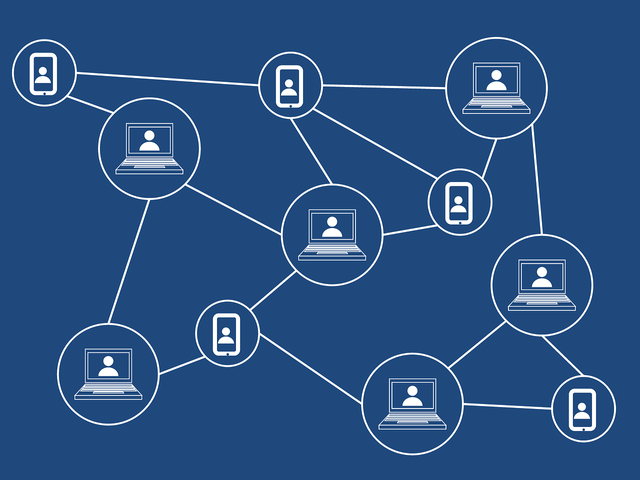The Impact Of Blockchain On Supply Chain Resilience
INTRODUCTION
The introduction of the blockchain technology has resulted in a positive impact on the resilience of the supply chains due to its transparency, efficiency, and traceability. Within the sphere of supply chain management, blockchain is an effective method of logging transactions, which enhances visibility within the process. Such visibility is paramount in ensuring that stakeholders are able to respond proactively in case of interruptions, maintaining efficiency even in times of crisis. Consequently, the technology of blockchain has emerged as key in enhancing the resilience of the global supply chains.
Accurate and real-time data at each and every end of the supply chain drives the concept of supply chain resilience. The blockchain technology allows the enterprises to ensure the dependability and integrity of the data that is captured as well as its relevance. This attribute enhances the security aspect in the prevention of frauds and counterfeit practice and unwarranted modification of the data helping to the seamlessness of the supply chain processes. Such systems ensure data integrity which wins confidence with the stakeholders hence building a stronger and more resilient system.
In addition, the blockchain technology is also able to enhance efficiency and effectiveness in the SCS processes. The use of the blockchain helps in the prompt sharing of information among various parties, hence removing self-imposed delays and misconstructions between suppliers, manufacturers and retailers. This improved communication is crucial in risk management and response to challenges, which are key factors in a resilient supply chain. As blockchain adoption grows, supply chains are becoming more adaptable and capable of withstanding various challenges.
- ENHANCED TRANSPARENCY AND TRACEABILITY
The potential impact of blockchain on supply chains is massive: having an incontrovertible record of transactions across every phase of a supply network adds significant value. This makes it possible for relevant parties to access accurate information, allowing them to be accountable within the supply chain. Because it has insights on all transactions, a company can trace the named problems back to their roots, addressing any interruptions and risks in a timely manner.
Moreover, quality and safety of product are also enhanced with the use of blockchain’s traceability features. It is important feature for industries which have a wide spectrum of compliance requirements such as food products and pharmaceuticals as consumers and businesses can confirm the provenance of products and trace its distribution. Such traceability allows faster recalls when needed and assures that because of the demands for such quality traceability, a product will be fit for purpose and will improve the performance of the supply chain.
The same purpose also solves the issue with counterfeiting as each item can be proven to be a genuine product because of its source. Since each item has an individual digital record, blockchain stops counterfeit products from joining the supply chain. This security is very useful for expensive products and establishes confidence and reliability in the supply chain so that genuine products attain the consumers.
- IMPROVED EFFICIENCY AND COST SAVINGS
By promoting direct communications between parties, Blockchain technology minimizes redundancies in supply chain processes. Since Blockchain enables the secure exchange of data as well as minimizes the need for manual data reconciliation, there are delays due to middlemen that are also minimized. Such efficiency not only eliminates waste time but also human resources making supply chain more robust in terms of setbacks and challenges.
In addition, such systems allow companies to automate some processes related to inventory control, thus increasing the level of efficiency achieved. With timely information gained, firms are able to maintain optimum stock within limits of supply so as not to run short. This dynamic inventory management lowers costs, and when problems arise within the supply chain, it enables firms to smoothly adjust to the changes in demand or supply situation.
Smart contracts based on the blockchain technology minimize the human effort involved in executing agreement terms and performing necessary tasks through the establishment of appropriate governance structures to enforce them. These contracts are self-executing, and this limits the chances of disputes and errors, which lowers administrative burden and delays. By making certain that contractual clauses are comply with, smart contracts boost confidence between the parties, hence enhancing operational performance and boosting supply chain integrity.
- RISK MITIGATION AND SECURITY
Through adding a protected and unrevisable transaction record, blockchain promotes the stability of the supply chain. Once a transaction is performed, it is saved in encrypted form and then dispersed throughout the network, making it extremely difficult to tamper with or undermine. This aspect of security is also very important in securing information content and the interactions in the system because unauthorised modifications are self-evidently impossible within the context of the blockchain.
In addition, the many centers of clarity in blockchain also aid safety and eliminate risks of singular breach locations. As data is replicated across multiple nodes, the loss or damage of a particular section of the network does not endanger the overall system. This resilience guarantees that data can be protected and retrieved anytime, even during technologies failure or cyber-attacks, hence sustaining the continuous supply chain processes.
Blockchain additionally provides access control to information and allows data sharing without necessarily compromising the business. Employing such tools as cryptography, companies do not have to share their private information and still communicate meaningful data supporters’ words. This feature preserves business and creative property, which makes it easier to work on supply chains in a safe environment and increases confidence between business parties.
- ENHANCED COLLABORATION AND TRUST
Blockchain enhances collaboration among supply chain partners by enabling them to share and exchange sensitive information in a transparent manner. As different parties have access to an original and unalterable document, it eliminates the possibilities of disputes and improves effectiveness. This collaborative approach enhances the resilience of the supply chains as all parties are synchronized and informed at all levels.
The trust that blockchain brings also enables companies to develop relationships with their suppliers. Blockchain enables trustworthy partnerships by easing uncertainty through the provision of verified information. Such relationships are vital in establishing a reliable supply chain network such that even during difficult periods, businesses are able to operate smoothly and consistently because they have dependable sources.
The benefits of blockchain extend to regulatory issues as well. Companies are able to communicate with their regulators in an effective manner. Through an organized history of user activities, organizations can easily show conformance to requirements, which invariably presents a lower risk of legislation to the organization. This kind of compliance builds confidence in the stakeholders and helps to enhance the flexibility of the supply chain in terms of legal and regulatory environments.
CONCLUSION

Supply chains can benefit from blockchain technology in several ways. They can reduce cycle times as well as streamline operational processes. So far, blockchain is most beneficial for increasing transparency across a given industry’s supply chain. By collaborating in a secure environment, companies can establish lasting partnerships that would otherwise not be feasible. Supply chain override factors will be overcome as industries shift towards the use of blockchains technology in supply chains.


Twitter share
https://twitter.com/Saintkelvin18/status/1857532715928818098?t=b4QmSV-xnPJFK0n5c52yfw&s=19
Blockchain been Decentralised and immutable in nature is really helping on a whole lot of ways to help change the narrative that we are used to when it comes to the supply chain management
Note:- ✅
Regards,
@jueco